Revolutionizing Kazakhstan’s Agriculture: Sustainable Tomato Farming and High-Tech Processing in Turkestan Region
“Kazakhstan’s Turkestan region project aims to produce 500,000 tons of tomatoes annually for export markets.”
Welcome to a groundbreaking journey through Kazakhstan’s agricultural revolution! We’re excited to share with you the transformative developments taking place in the Turkestan region, where sustainable agriculture and cutting-edge technology are merging to create a new era of tomato farming and high-tech processing. This pioneering initiative is set to position Kazakhstan as a major player in the global agricultural export market, and we’re here to guide you through every fascinating aspect of this innovative project.
The Dawn of a New Agricultural Era in Kazakhstan
In the heart of Central Asia, Kazakhstan is embarking on an ambitious journey to revolutionize its agricultural sector. The Turkestan region, known for its fertile soil and favorable climate, is at the forefront of this transformation. With a focus on sustainable tomato farming and advanced processing techniques, this initiative is set to redefine Kazakhstan’s role in the global agricultural landscape.
Let’s delve into the key features that make this project a game-changer for Kazakhstan’s agriculture:
| Feature | Description | Estimated Impact | Sustainability Aspect |
|---|---|---|---|
| Advanced Farming Technologies | Implementation of precision agriculture techniques and smart farming systems | 30% increase in crop yield | Reduced resource waste and optimized land use |
| Sustainable Irrigation (Shardara reservoir) | Utilization of the Shardara water reservoir for efficient water management | 40% reduction in water consumption | Conservation of water resources and improved drought resilience |
| Processing Techniques | State-of-the-art processing facilities for tomatoes and other produce | 50% increase in product shelf life | Reduced food waste and energy-efficient processing |
| Export-Oriented Production | Focus on high-quality products for international markets | 90% of production aimed at export | Boost in economic complexity and reduced carbon footprint through efficient logistics |
| Government Support | Tax incentives and subsidies for water-saving technologies | $100 million total investment facilitated | Promotion of sustainable farming practices and long-term economic viability |
| Job Creation | Generation of employment opportunities in farming and processing | Over 1,000 new jobs created | Social sustainability through local employment and skills development |
| Economic Growth | Boost to regional and national economy through increased exports | Significant contribution to GDP growth | Sustainable economic development and improved living standards |
| Diversification | Expansion into frozen fruits, vegetable purees, and freeze-dried foods | 20% increase in product range | Improved food security and year-round availability of nutritious products |
This comprehensive approach to agricultural development in Kazakhstan’s Turkestan region is not just about increasing production; it’s about creating a sustainable ecosystem that benefits farmers, consumers, and the environment. By leveraging advanced technologies and sustainable practices, Kazakhstan is poised to become a leader in high-value agricultural products for the global market.
The Power of Sustainable Agriculture in Kazakhstan
At the core of this revolutionary project is the concept of sustainable agriculture. We’re witnessing a perfect synergy between Kazakhstan’s natural advantages and modern farming techniques. The Turkestan region, blessed with 300 sunny days a year and rich, fertile soil, provides an ideal setting for tomato cultivation. But it’s not just about leveraging these natural assets; it’s about enhancing them with sustainable practices.
Sustainable agriculture in Kazakhstan is being redefined through this initiative. By implementing water-saving technologies and utilizing the Shardara water reservoir, the project ensures efficient use of this precious resource. This approach not only conserves water but also improves the overall resilience of the agricultural system to climate variations.
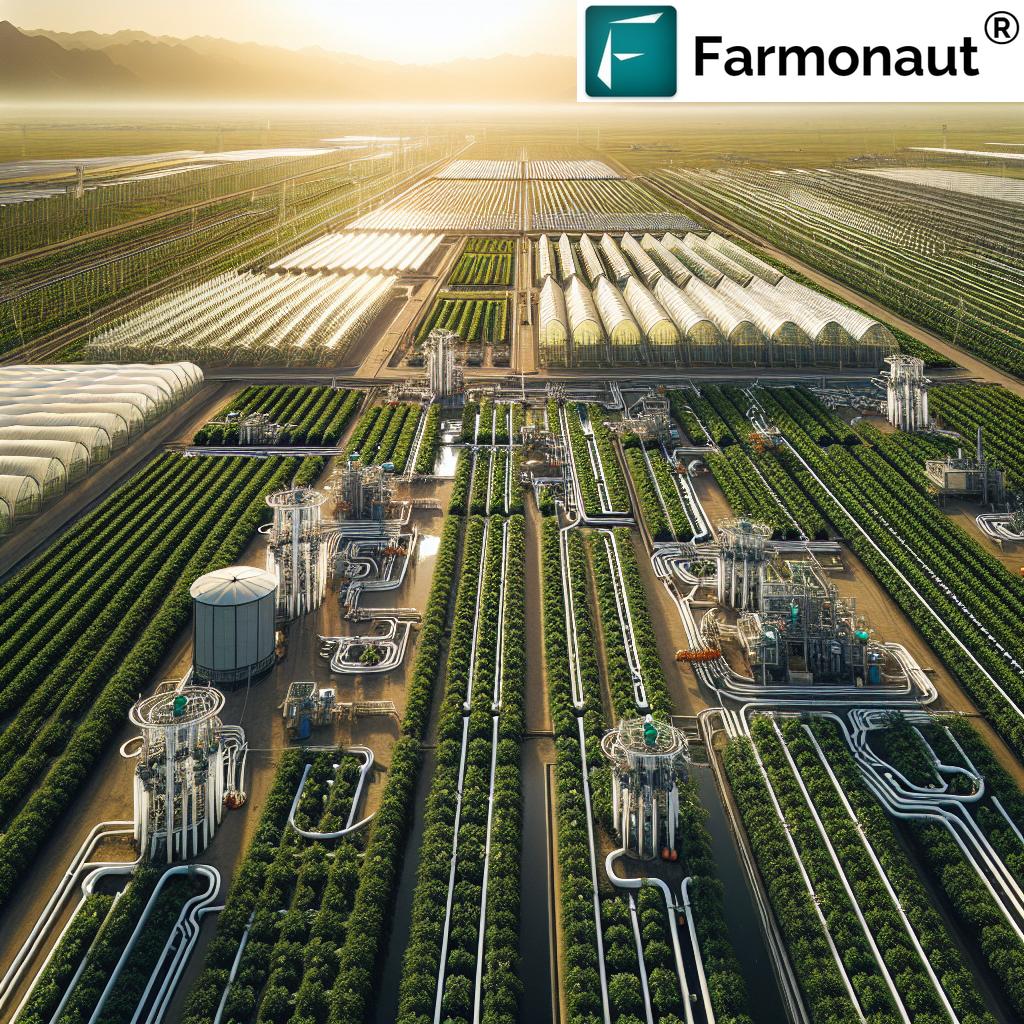
The focus on sustainability extends beyond water management. The project incorporates:
- Soil conservation practices to maintain long-term fertility
- Integrated pest management to reduce reliance on chemical pesticides
- Energy-efficient processing facilities to minimize carbon footprint
- Crop rotation and diversification to enhance soil health and biodiversity
These sustainable practices not only ensure the long-term viability of the project but also position Kazakhstan as a responsible player in the global agricultural market. As consumers worldwide increasingly demand sustainably produced food, Kazakhstan’s commitment to these practices gives it a competitive edge.
Cutting-Edge Tomato Farming Techniques
The heart of this agricultural revolution lies in the advanced tomato farming techniques being employed. These methods are transforming the way tomatoes are grown, harvested, and processed in Kazakhstan. Let’s explore some of the key innovations:
- Precision Agriculture: Utilizing satellite imagery and soil sensors to optimize planting, irrigation, and harvesting.
- Climate-Controlled Greenhouses: Extending the growing season and protecting crops from extreme weather conditions.
- Automated Harvesting Systems: Increasing efficiency and reducing labor costs while ensuring gentle handling of the produce.
- Advanced Irrigation Systems: Implementing drip irrigation and moisture sensors for precise water delivery.
These tomato farming techniques are not just about increasing yield; they’re about producing high-quality tomatoes that meet international standards. The project’s focus on a 90-day harvest cycle makes it competitive even with global leaders like California, showcasing the potential of Kazakhstan’s agricultural sector.
Tapping into the Global Agricultural Export Market
One of the most exciting aspects of this initiative is its strong focus on the global agricultural export market. Kazakhstan is strategically positioning itself to become a major exporter of high-value agricultural products, with tomatoes leading the way. The project aims to export up to 90% of its production, primarily targeting European, South Asian, and Gulf Region markets.
This export-oriented approach brings multiple benefits:
- Diversification of Kazakhstan’s economy, reducing dependence on oil and mineral exports
- Increased foreign exchange earnings
- Enhanced reputation for Kazakhstan as a producer of high-quality agricultural goods
- Opening of new trade relationships and strengthening of existing ones
To succeed in the competitive global market, the project is focusing on producing premium-quality tomatoes and processed products that meet international standards. This includes implementing rigorous quality control measures and obtaining necessary certifications for export markets.
Advanced Farming Technologies: The Backbone of the Revolution
The success of this agricultural initiative hinges on the integration of advanced farming technologies. These technologies are not just enhancing productivity; they’re fundamentally changing the way agriculture is practiced in Kazakhstan. Here’s a closer look at some of the key technological innovations being employed:
- IoT Sensors and Big Data Analytics: Monitoring crop health, soil conditions, and weather patterns in real-time.
- AI-Powered Decision Support Systems: Providing farmers with data-driven insights for optimal crop management.
- Drone Technology: For aerial surveying, crop monitoring, and precision application of inputs.
- Blockchain for Traceability: Ensuring transparency and authenticity in the supply chain.
These advanced farming technologies are not just improving efficiency; they’re also making agriculture more sustainable and resilient. By providing precise data and control, these technologies help minimize resource use while maximizing output and quality.
“The sustainable agriculture initiative in Kazakhstan’s Turkestan region plans to create over 2,000 new jobs in the area.”
High-Value Agricultural Products: Beyond Tomatoes
While tomatoes are at the forefront of this agricultural revolution, the project’s vision extends far beyond. The initiative is set to diversify into a range of high-value agricultural products, positioning Kazakhstan as a versatile player in the global food market. Some of the planned expansions include:
- Frozen Fruits: Capitalizing on Kazakhstan’s fruit-growing regions to produce high-quality frozen fruits for international markets.
- Vegetable Purees: Creating value-added products from a variety of locally grown vegetables.
- Freeze-Dried Foods: Tapping into the growing market for lightweight, long-lasting food products.
- Microgreens: Catering to the health-conscious consumer market with nutrient-dense produce.
- Emergency Food Kits: Developing specialized products for disaster relief and outdoor enthusiasts.
This diversification strategy not only spreads risk but also allows Kazakhstan to tap into various segments of the global food market. It showcases the country’s ability to produce a wide range of high-quality agricultural products, further cementing its position as an agricultural powerhouse.
The Role of Government Support and Investment
The success of this ambitious agricultural project is greatly bolstered by strong government support and strategic investments. The Kazakh government has shown a clear commitment to transforming the country’s agricultural sector, offering a range of incentives and support mechanisms:
- Tax Incentives: Encouraging investment in agricultural technology and sustainable practices.
- Subsidies for Water-Saving Technologies: Promoting efficient use of water resources in agriculture.
- Investment-Friendly Policies: Creating a conducive environment for both domestic and foreign investments in the agricultural sector.
- Infrastructure Development: Improving transportation and logistics to support the export-oriented production.
The total investment of $100 million in this project demonstrates the scale of commitment to agricultural transformation. This investment is not just in physical infrastructure but also in human capital, research and development, and market development.
Economic Impact and Job Creation
The ripple effects of this agricultural initiative extend far beyond the farms and processing facilities. It’s set to have a significant impact on the economic landscape of the Turkestan region and Kazakhstan as a whole:
- Job Creation: The project is expected to generate over 1,000 new jobs directly, with many more indirect jobs in supporting industries.
- Skills Development: Training programs will be implemented to equip local workers with skills in modern agricultural practices and technologies.
- Economic Diversification: By boosting agricultural exports, Kazakhstan is reducing its reliance on traditional sectors like oil and minerals.
- Rural Development: The project is breathing new life into rural areas, creating opportunities and improving infrastructure.
The economic benefits are designed to be sustainable, with the project expected to generate enough tax revenue to repay state support within five years. This demonstrates the long-term viability and economic soundness of the initiative.
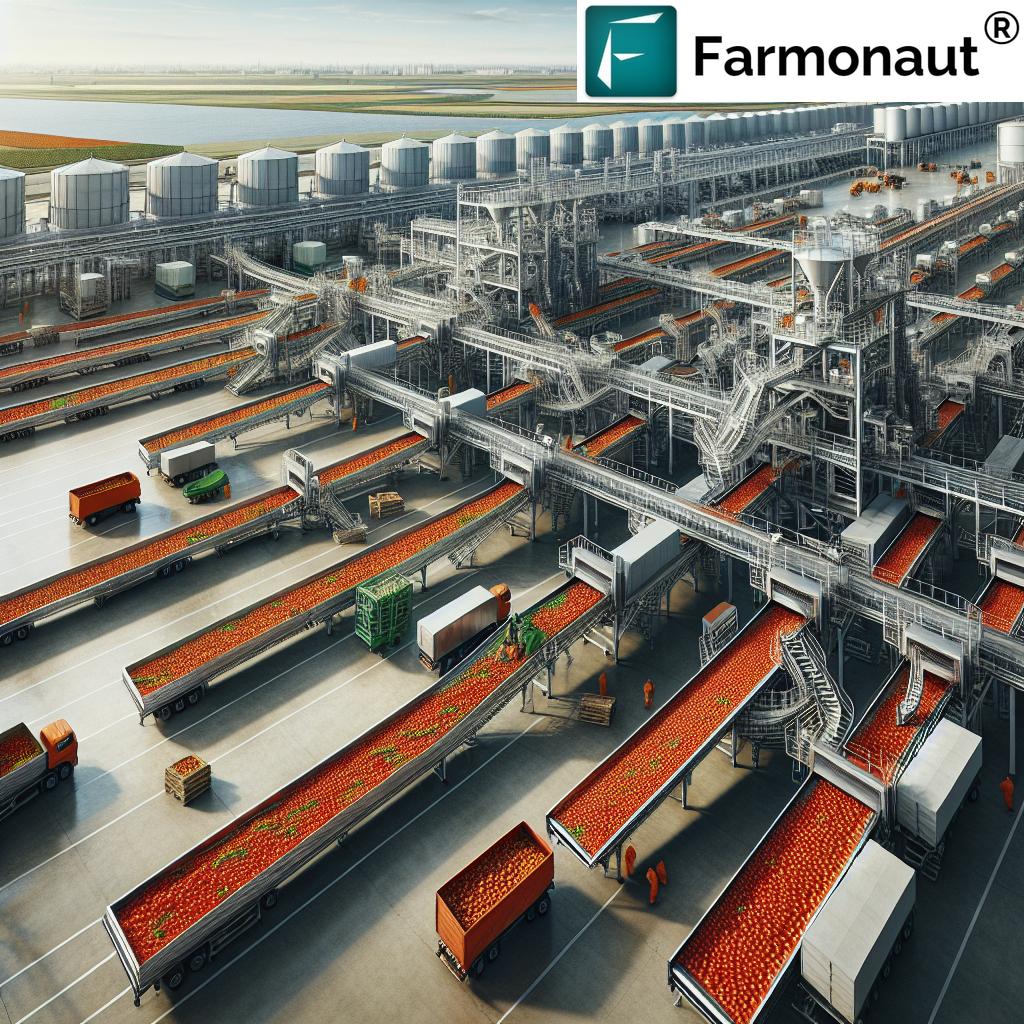
Sustainable Irrigation Practices: The Shardara Reservoir
A cornerstone of this sustainable agriculture project is the innovative use of the Shardara water reservoir. This approach to irrigation is setting new standards for water management in agriculture:
- Efficient Water Distribution: Advanced irrigation systems ensure that water is used precisely where and when it’s needed.
- Water Quality Monitoring: Regular testing ensures that the water used for irrigation meets the highest standards for crop health and food safety.
- Drought Resilience: The reservoir provides a stable water supply, reducing vulnerability to seasonal variations and climate change impacts.
- Ecosystem Preservation: Careful management of water resources helps maintain the ecological balance of the surrounding area.
These sustainable irrigation practices not only support the tomato farming initiative but also serve as a model for water conservation in agriculture across Kazakhstan and beyond.
Agricultural Processing Technologies: Adding Value to Raw Produce
The project’s focus on processing technologies is a game-changer for Kazakhstan’s agricultural sector. By adding value to raw produce, the country is moving up the agricultural value chain. Some of the key processing technologies being implemented include:
- Advanced Sorting and Grading Systems: Ensuring only the highest quality produce is selected for processing and export.
- State-of-the-Art Washing and Sanitizing Equipment: Meeting international food safety standards.
- Cutting-Edge Packaging Technologies: Extending shelf life and maintaining product quality during transportation.
- Freeze-Drying Facilities: Producing high-value, lightweight products for specific market segments.
These processing technologies not only add value to Kazakhstan’s agricultural products but also open up new market opportunities, particularly in the convenience food sector.
The Role of Climate and Soil in Kazakhstan’s Agricultural Success
Kazakhstan’s unique climate and soil conditions play a crucial role in the success of this agricultural initiative. The Turkestan region, with its 300 sunny days per year, provides an ideal environment for tomato cultivation. This abundant sunshine, combined with the region’s fertile soil, creates perfect conditions for growing high-quality tomatoes and other crops.
Key advantages of Kazakhstan’s climate and soil include:
- Extended Growing Season: The long periods of sunshine allow for multiple crop cycles.
- Rich Soil Composition: The region’s soil is naturally rich in nutrients, reducing the need for artificial fertilizers.
- Low Pest Pressure: The climate naturally limits certain pests, supporting more organic farming practices.
- Water Retention: The soil structure in many areas has good water retention properties, complementing the irrigation efforts.
By leveraging these natural advantages and combining them with modern agricultural technologies, Kazakhstan is creating a unique and highly competitive agricultural sector.
The Future of Kazakhstan’s Agricultural Sector
As we look to the future, the potential for Kazakhstan’s agricultural sector is immense. This tomato farming and processing initiative is just the beginning of what promises to be a comprehensive transformation of the country’s agriculture. Some future developments we can anticipate include:
- Expansion into Other Crops: Applying the successful model to other high-value crops suitable for Kazakhstan’s climate.
- Increased Automation: Further integration of AI and robotics in farming and processing.
- Research and Development: Establishment of agricultural research centers to develop new crop varieties and farming techniques.
- Educational Programs: Development of specialized agricultural education to build a skilled workforce for the sector.
These developments will not only solidify Kazakhstan’s position in the global agricultural market but also contribute to the country’s overall economic diversification and sustainable development goals.
FAQs
- Q: How does this project contribute to sustainable agriculture in Kazakhstan?
A: The project implements water-saving technologies, uses sustainable irrigation practices, and focuses on efficient resource management, all contributing to a more sustainable agricultural sector in Kazakhstan. - Q: What are the main export markets for Kazakhstan’s tomatoes and processed products?
A: The primary export markets are European countries, South Asian nations, and the Gulf Region. - Q: How many jobs is this agricultural initiative expected to create?
A: The project is anticipated to generate over 1,000 direct jobs, with many more indirect jobs in supporting industries. - Q: What role does the Shardara water reservoir play in this project?
A: The Shardara reservoir is crucial for sustainable irrigation, providing a stable water supply and enabling efficient water management practices. - Q: How is the Kazakh government supporting this agricultural initiative?
A: The government is providing tax incentives, subsidies for water-saving technologies, and creating investment-friendly policies to support the project.
Conclusion
The sustainable tomato farming and high-tech processing initiative in Kazakhstan’s Turkestan region represents a significant leap forward in the country’s agricultural development. By combining advanced farming technologies, sustainable practices, and a focus on high-value products for the global market, Kazakhstan is positioning itself as a major player in the international agricultural scene.
This project not only promises economic benefits through job creation and export revenues but also sets a new standard for sustainable agriculture in the region. As the initiative progresses, it will undoubtedly serve as a model for other countries looking to modernize and sustainably develop their agricultural sectors.
The future of agriculture in Kazakhstan looks bright, with this project paving the way for a more diverse, technologically advanced, and sustainable agricultural landscape. As we continue to monitor the progress of this revolutionary initiative, we can expect to see Kazakhstan emerge as a leading force in global agriculture, contributing to food security and sustainable development on a global scale.
For those interested in leveraging technology for sustainable agriculture, Farmonaut’s satellite-based farm management solutions offer valuable tools for precision agriculture. Their platform provides real-time crop health monitoring, AI-based advisory systems, and resource management tools, aligning perfectly with the goals of sustainable and efficient farming practices.
Additionally, for large-scale agricultural operations similar to the Kazakhstan project, Farmonaut’s large-scale farm management solutions can be particularly beneficial. These tools can help in efficiently managing vast agricultural operations, optimizing resource use, and improving overall productivity.
As we witness the transformation of Kazakhstan’s agricultural sector, it’s clear that the fusion of traditional farming wisdom with cutting-edge technology is the key to a sustainable and prosperous future in agriculture. This project in the Turkestan region is not just about tomatoes; it’s about sowing the seeds of innovation for a greener, more productive tomorrow.









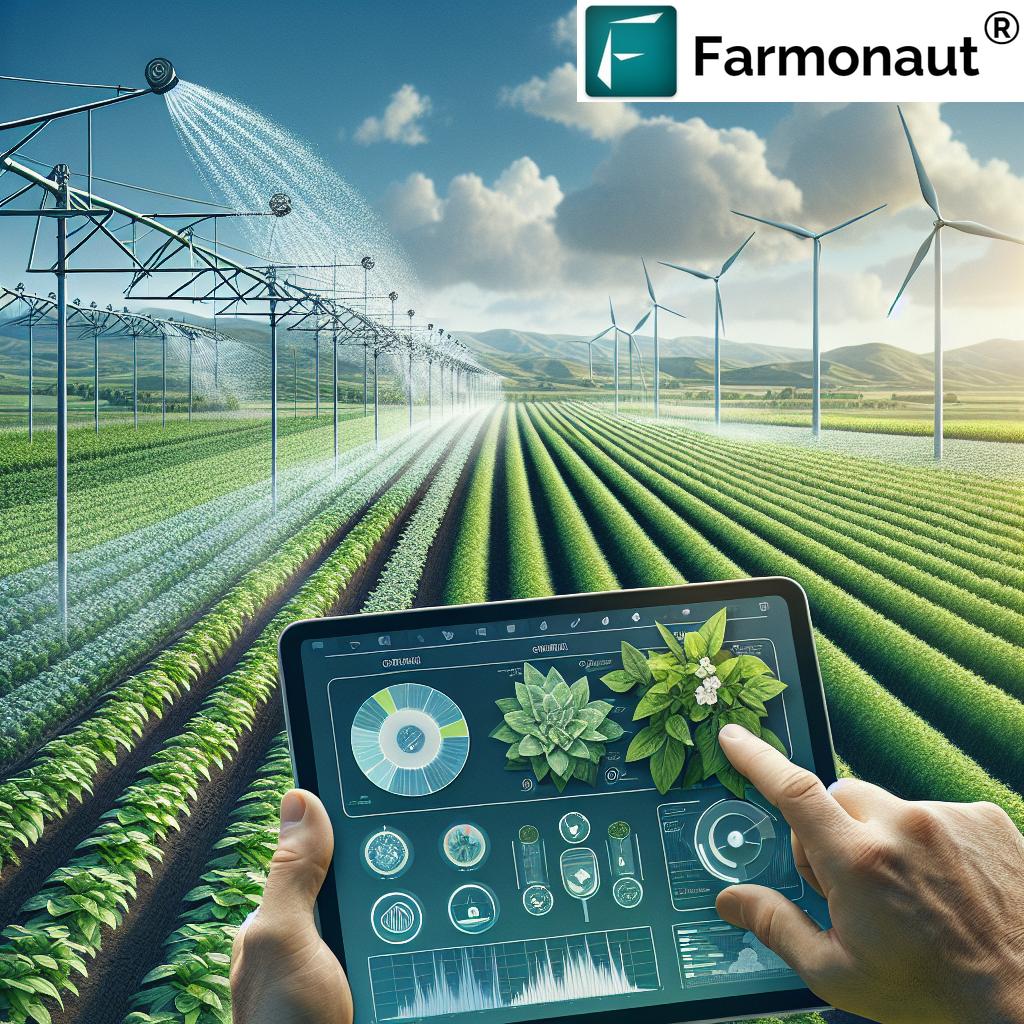
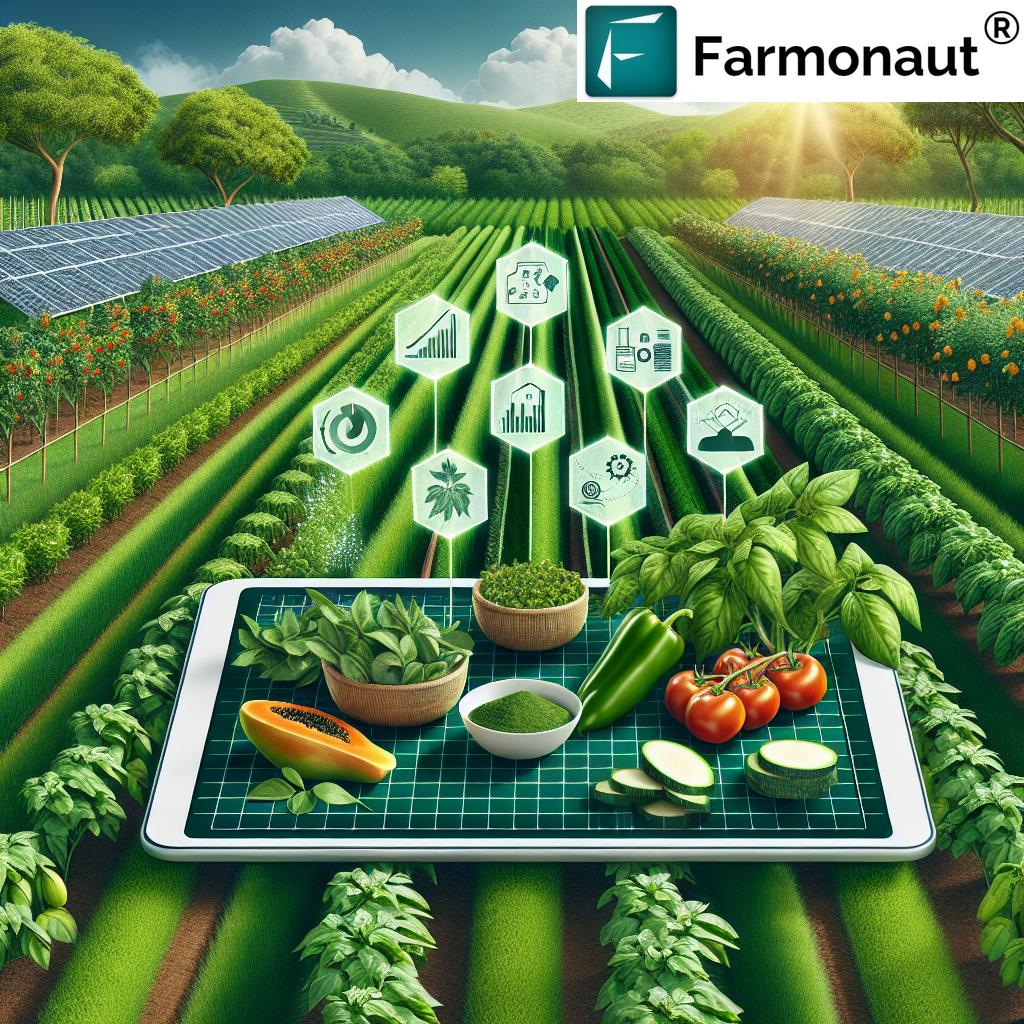





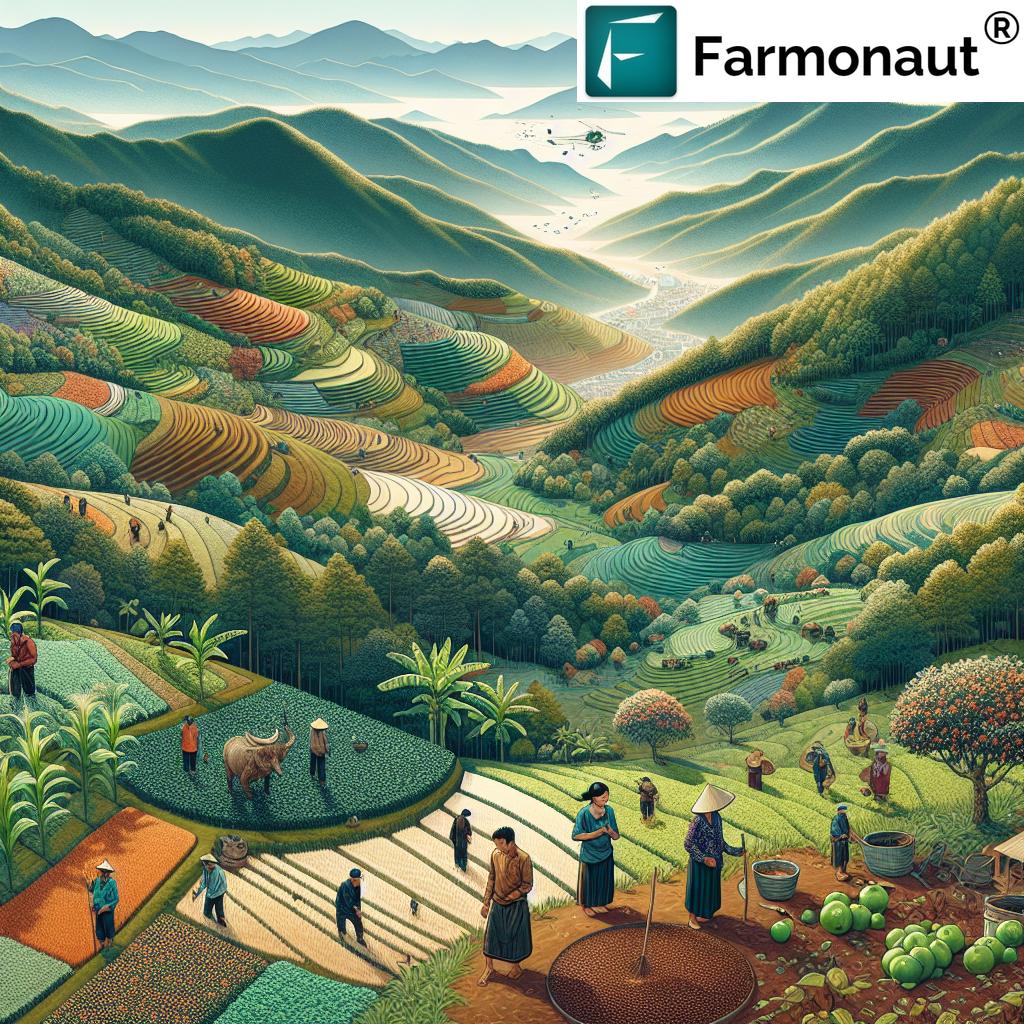

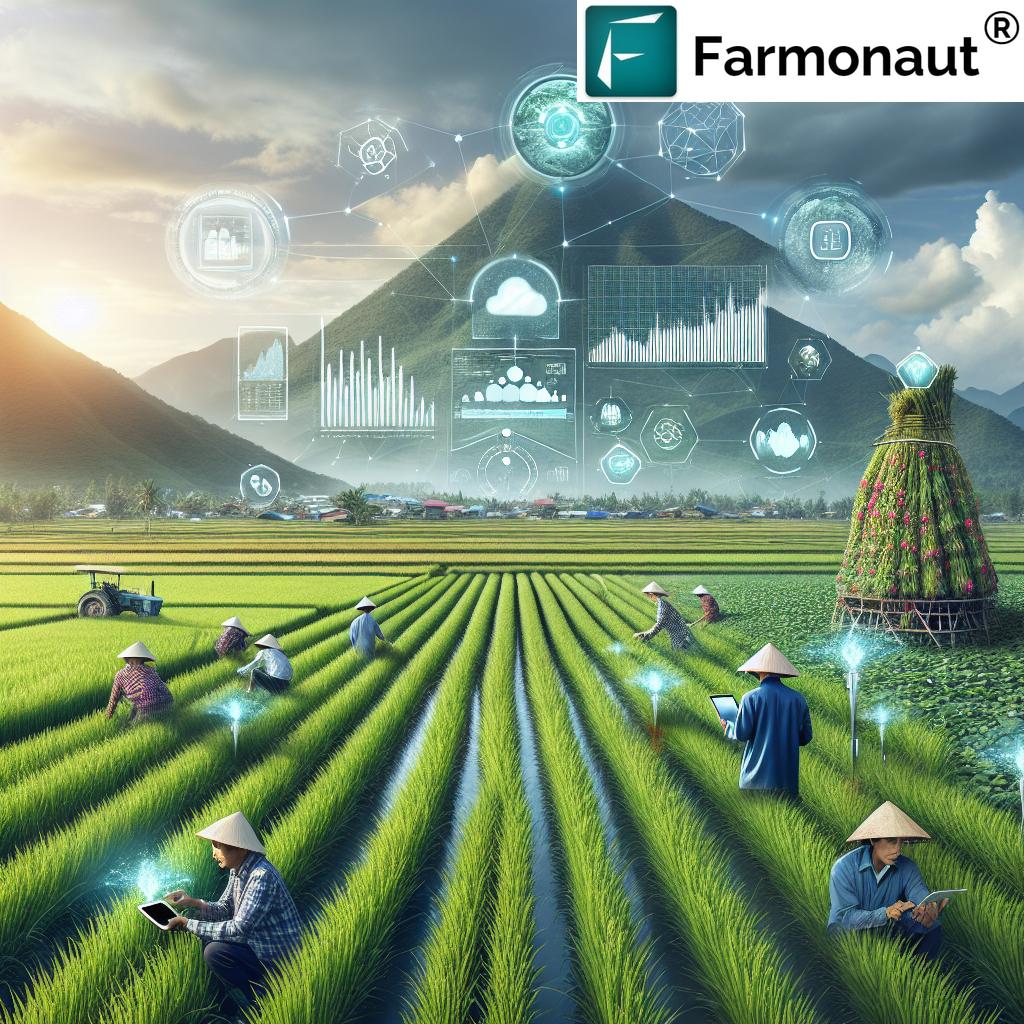
Hiya, I am really glad I’ve found this info. Nowadays bloggers publish just about gossips and internet and this is actually annoying. A good website with exciting content, this is what I need. Thank you for keeping this web site, I will be visiting it. Do you do newsletters? Can not find it.